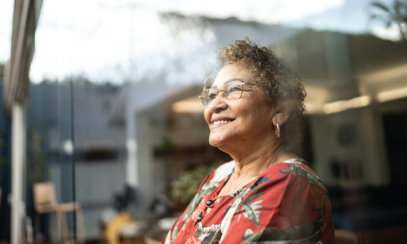
Invite God to Be With You on Your Caregiving Journey
“It is to those who have the most need of us that we ought to show our love.” - St. Francis de Sales
“It is to those who have the most need of us that we ought to show our love.” - St. Francis de Sales
Today, with technological and medical advances, people are living longer with chronic illnesses but are requiring years of care. Life-limiting illnesses can include physical, spiritual, mental and social consequences for the ill person, which has the potential to spill over to the caregiver. Research shows that social support has a positive effect on our well-being, which results in less caregiving burden. To dodge a negative experience, pray with the person receiving care and equip yourself with proper support. Here are some suggestions:
Pray: Your best resource is daily prayer. View this care experience as a teachable moment in time in your life course, one where you practice drawing on your faith to grow in patience, agape love, empathy and understanding. Pray together with the care recipient to cultivate gratefulness for each other. Also, reach out to clergy, medical providers and other professionals to learn about community resources.
Find your people: It is important early on to think about the role of friends and family in your circle/community who support you in this journey. Dr. Ken Doka, a gerontologist specializing in grief studies, notes how helpful it is to identify people to aid you. He refers to them as the doers, listeners, honest evaluators and respite friends. I would add to the list, the prayer partner/s.
Know your goal/s: Remind yourself often of the goals of this particular caregiving experience. Perhaps it is to honor your care recipient’s request to remain at home until the end of their life, for example. Revisit goals often with the care recipient and others if you are sharing the caregiving. Also, this is a time when new skills can be developed, such as problem solving, communication and positivity. Hence, the importance of having consistent social support.
Daily prayer is essential for our spiritual wellness whether we pray alone or with another. Pray for God to place people in your path as prayer partners, doers, listeners, honest evaluators and respite persons during this time of caring for another. Next, recognize and approach them, locate resources in your community and examine your goals and skills. Trust that you will finish strong on your journey of love and care for another.
Dr. Laurel Hilliker is a sociologist and a Fellow in Thanatology through the Association for Death Education and Counseling. She is the founder of Bearing Loss, Grief Education and Consulting, LLC. She teaches for the University of Michigan-Flint in the Department of Public Health and Health Sciences.



